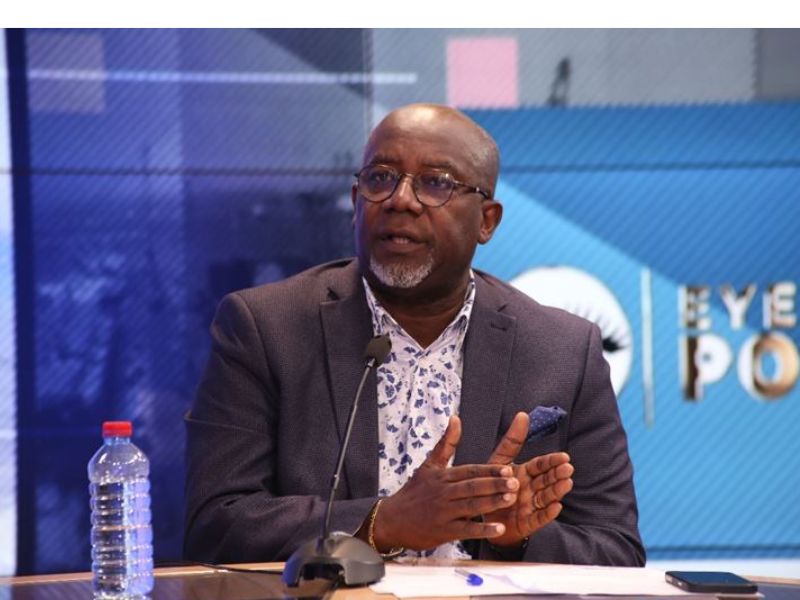The Harbour Master at the Port of Tema, Captain Francis Kwesi Micah has touted the processes in place at Ghana’s ports which have maintained the ports’ reputation of being safe, secure and efficient hubs for the maritime trade.
Speaking on the role of port marine operations on the global supply chain on the Eye on Port TV program, the seasoned mariner said Ghana’s ports have implemented several standardized and internationally recognized procedures that will not only guarantee the continuity of the seaborne trade, but also ensure the security and safety of maritime personnel, properties and the environment.
He said the ports of Ghana operate under the Maritime Security Level 1 (MARSEC 1) which means the minimum appropriate security measures necessary are maintained at all times.
The ports of Ghana are also signatories to the International Convention for the Safety of Life at Sea (SOLAS).
In addition, Ghana’s ports comply with the International Ship and Port Facility Security (ISPS) Code which has set in place minimum security arrangements for ships, ports and government agencies around the world.
Ghana’s ports also comply with the International Convention for the Prevention of Pollution from Ships (MARPOL) geared towards sustainable use of the ocean environment.
Capt. Micah, who is the head of the Marine Operations Department and the ISPS Officer at the Port of Tema, says his outfit fulfils its responsibility of ensuring all these safeguards are in place in their operations.
“We are always aware of our position in this intricate web to ensure that we get the fundamentals right to ensure safety, security and efficiency.”
This he said is done by ensuring safety of personnel on board vessels, and the safety of equipment being deployed for marine operations.
Security is also maintained by joint security patrols across the anchorages of the ports, and other coordinated efforts with key stakeholders such as the Navy, the Ghana Maritime Authority and the Marine Police.
A network of Ghana’s port personnel and representatives of key stakeholders including Customs, at the port, he said, implement standard procedures for the handling of vessels carrying the various forms of cargoes.
The ISPS committee according to the Harbour Master,meet periodically to discuss and explore developing trends that come up so far as maritime security is concerned.
He said he recognizes the critical role of the port as it serves as the interface and gateway to international commerce. On the other hand, the port can inadvertently serve as a conduit for international crime and catastrophe thus “we have established the declaration of security among other procedures to ensure that vessels, their cargoes and the port facility are all safe to protect life and property.”
The Harbour Master at the Port of Tema said one major hallmark of the security at Ghana’s ports is its success in preventing stowaways at the ports over recent years.
He said management of the Ghana Ports and Harbours Authority (GPHA) is moving ahead to ensure that Ghana’s ports are not used to disembark stowaways from other countries.
“We saw our ports have been used as safe landing spots for these stowaways. So to combat this, some punitive fines have been introduced in the tariffs to make it not convenient for ship masters or PNI clubs,” he added.
Another threat to security that is noteworthy, he said, is the growing case of illegal bunkering activities outside of the port’s jurisdiction and the Ghana Navy, and allied agencies have doubled up efforts to eradicate this menace.
The Harbour Master also made mention of the influx of fisher folk who may breach the access channels for fishing activities. GPHA he said is concerned due to the safety risk that poses on fishers themselves and the shipping business.
“Because once a vessel is making its way through a designated channel, that passage should not be impeded by these fisher folk because it could end up with the vessel taking evasive action which could potentially end it up in shallow grounds and that will cause havoc to the ship and the entire port environment and that will affect the economy and global commerce. We all remember what happened in the Suez Canal. There’s been difficulty in that area sometimes, because “when we ward them off, they find themselves at some other area of the anchorage.”
Nonetheless, Capt. Micah disclosed that the Ghana Ports and Harbours Authority will continue to upgrade its processes, acquire modern equipment and train its staff, all towards the goal of creating world class ports that are not efficient but safe and secure for business.
He praised the combined efforts of all stakeholders who have contributed to the enviable position of the ports of Ghana in the maritime industry of West and Central Africa.










